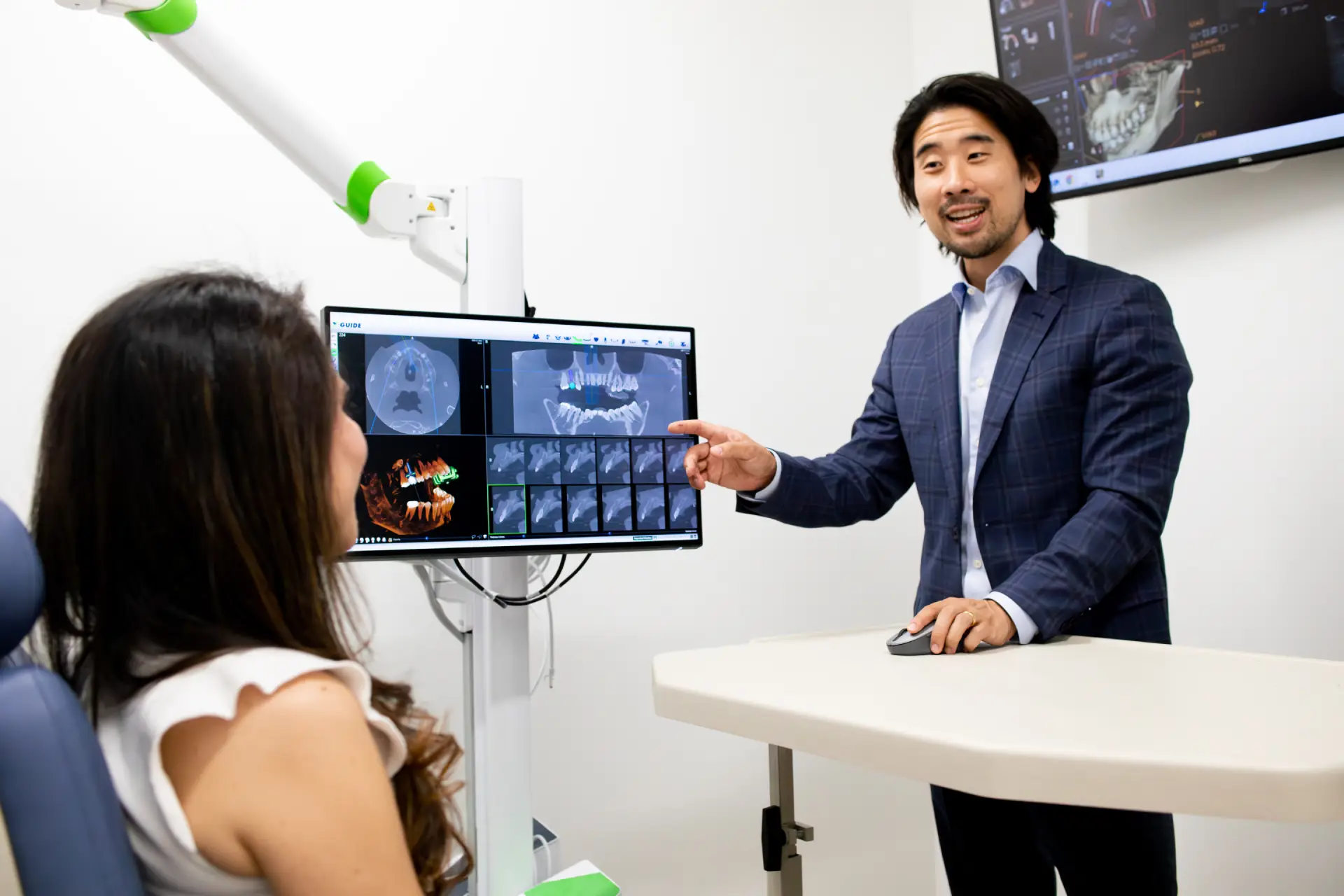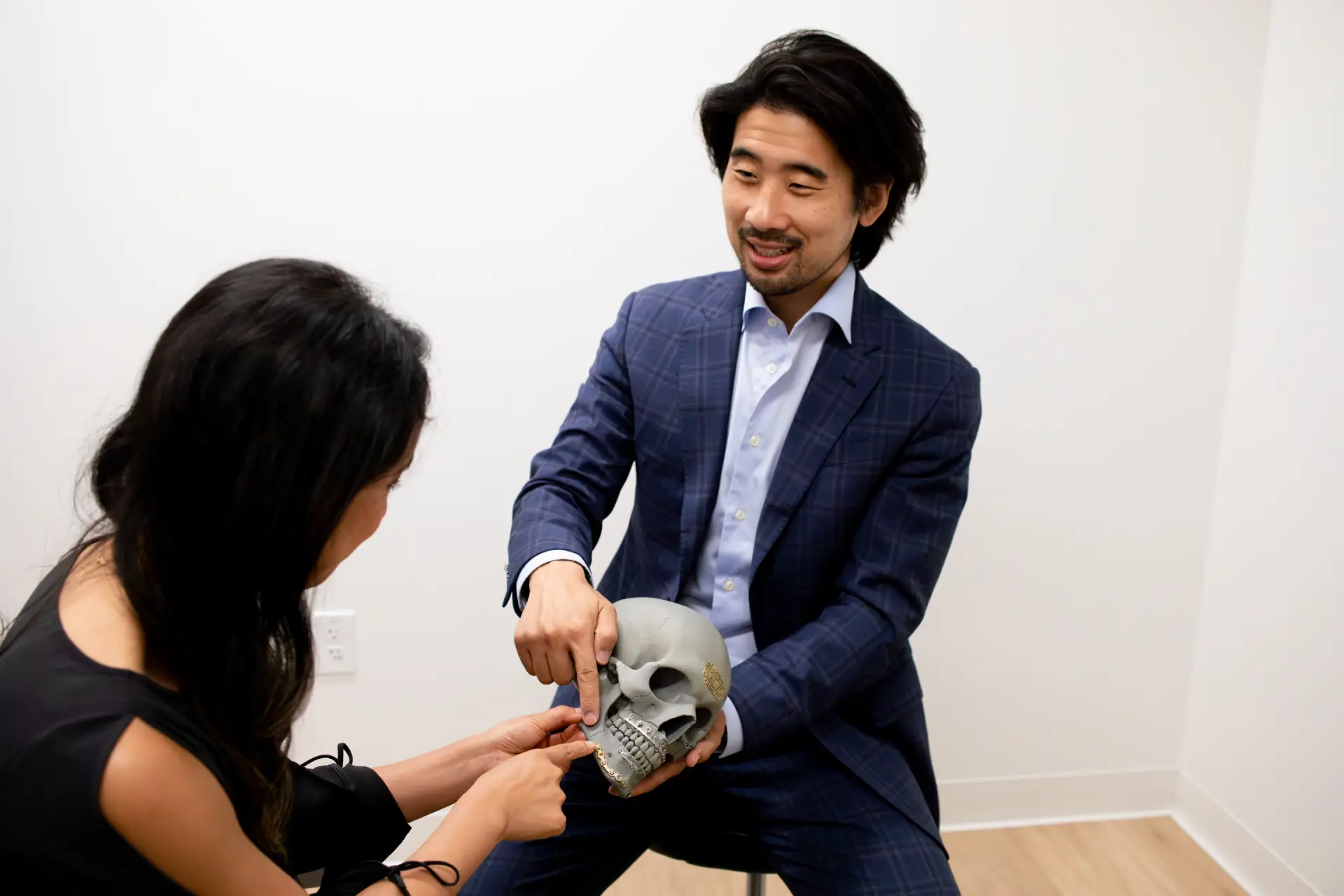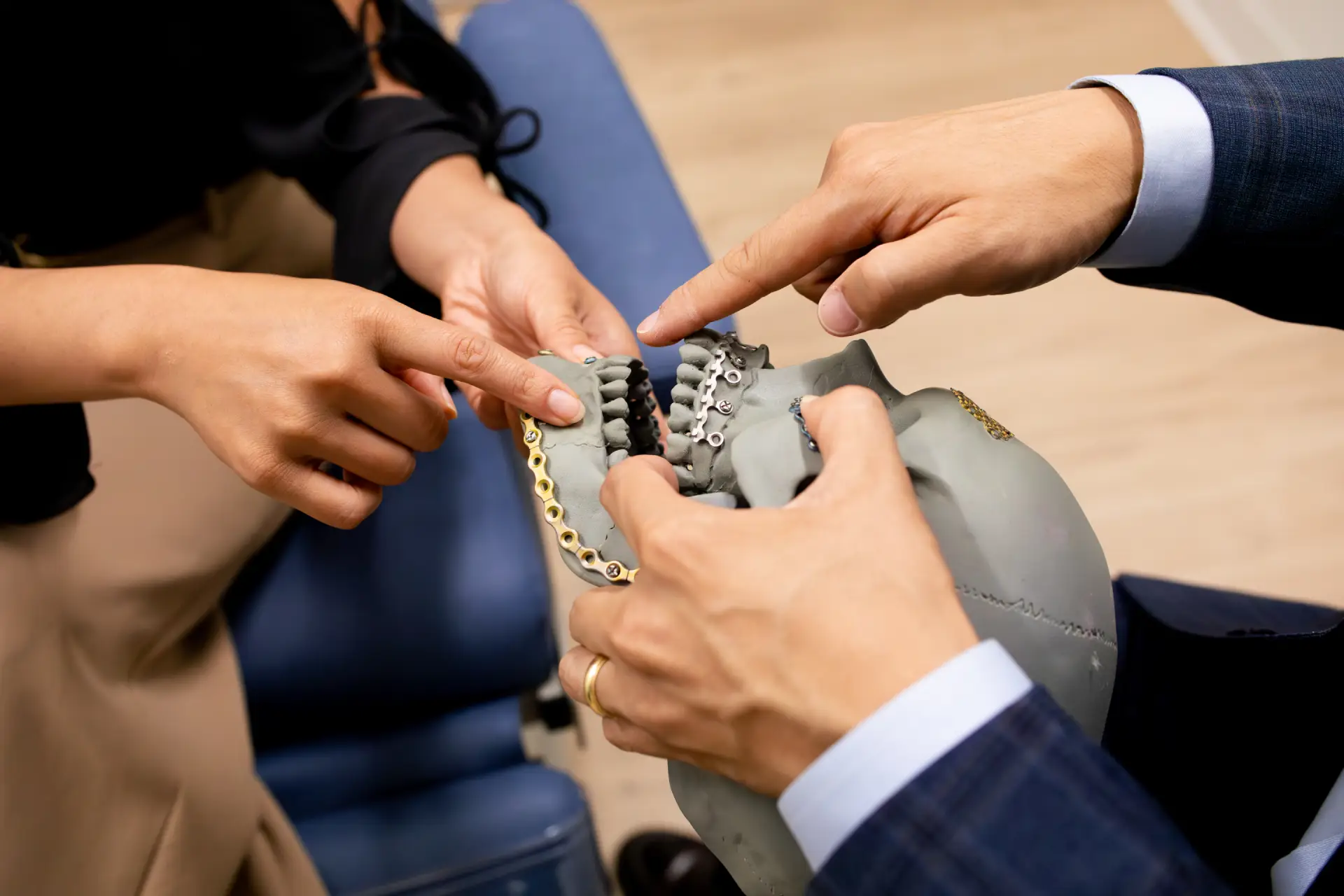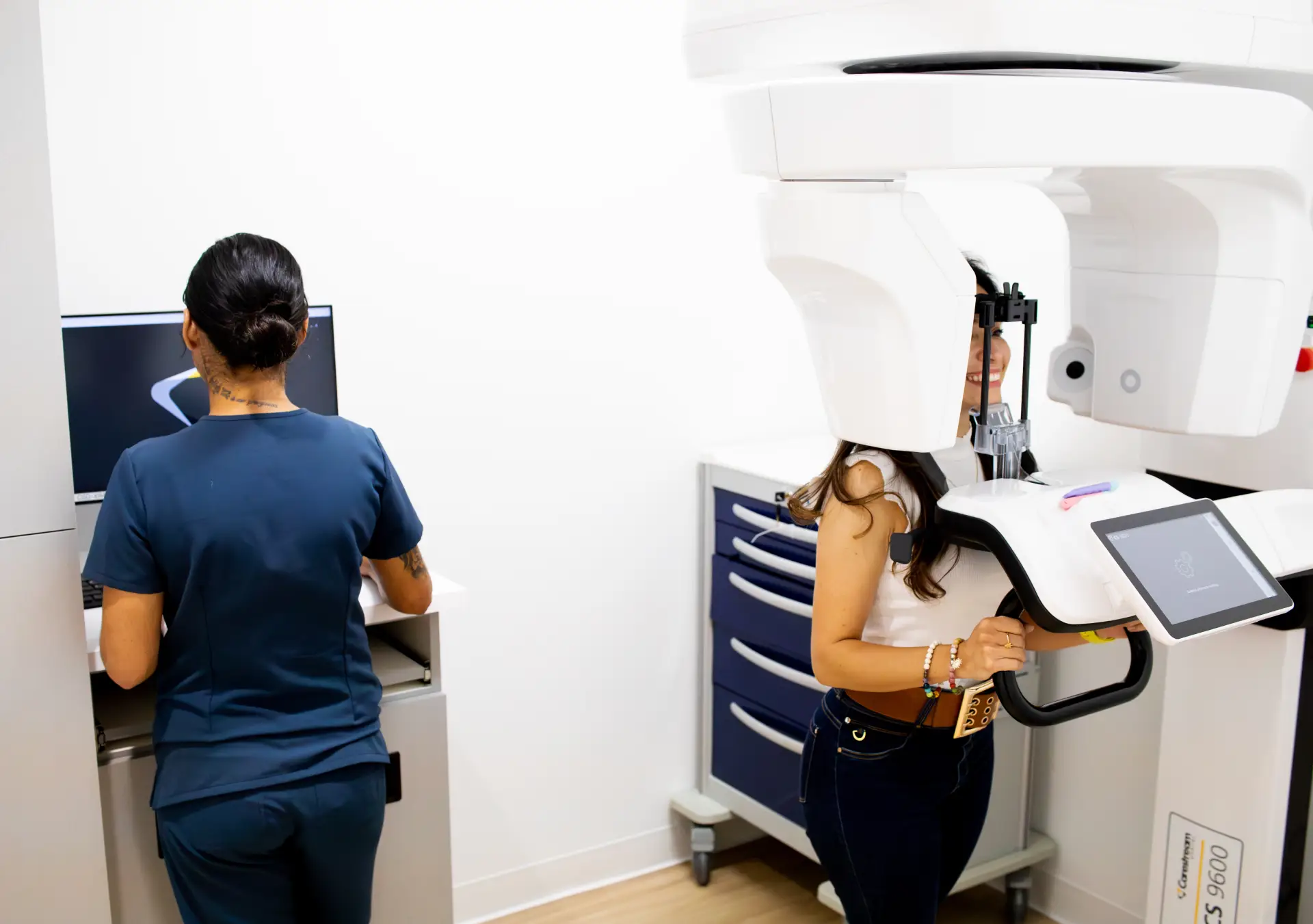.webp)
Jaw SurgeryIn Oakland, CA
Jaw reconstruction is a transformative surgical procedure designed to restore the structure, function, and appearance of the jaw. Whether due to trauma, congenital conditions, severe dental infections, or extensive bone loss, these issues can dramatically affect your health, confidence, and quality of life.
At Piedmont Implant Oral Surgery in Oakland, CA, Dr. Jesse Han specializes in advanced jaw reconstruction techniques tailored to each patient’s unique needs. As a dual-degree oral and maxillofacial surgeon (DDS, MD), Dr. Han brings a high level of medical and surgical expertise to every procedure, offering you a thoughtful, comprehensive path to stability, function, and facial harmony.
Why Choose Jaw Reconstruction at Piedmont Implant Oral Surgery?
Choosing jaw reconstruction at Piedmont Implant Oral Surgery means gaining access to world-class surgical care in a compassionate, patient-centered environment. Dr. Jesse Han has performed thousands of oral surgeries, including complex full-face and jaw restorations using cutting-edge navigation like X-Guide technology for unparalleled precision.
This minimizes downtime and enhances comfort. Jaw reconstruction does more than restore bone. It restores oral health, improves speech, enhances facial aesthetics, and prepares the foundation for future dental restorations like implants. Each treatment plan is uniquely designed to address your functional goals and long-term health, so you can feel like yourself again, only stronger.
The Benefits of Jaw Reconstruction
Restore Jaw Function
Difficulty chewing or speaking due to jaw issues can significantly impact your daily life. Jaw reconstruction reestablishes a stable bite and jaw alignment, helping you eat, speak, and smile with comfort and confidence.
Prepare for Dental Implants
Severe bone loss or trauma from injuries can make implant placement impossible unless reconstruction is completed first. By rebuilding the jaw’s foundation, you're setting the stage for successful dental implant placement that will last for years to come.
Facial Aesthetics and Confidence
When the jaw is misaligned or deteriorated, facial proportions can appear sunken or uneven. Reconstructive surgery restores natural contours, symmetry, and definition. In turn, this helps you reclaim a youthful, balanced appearance.
What to Expect From Jaw Reconstruction

Consultation & Planning
Your journey begins with a comprehensive consultation at our Oakland office. Dr. Han will perform a detailed evaluation using high-resolution imaging and 3D planning software to assess bone structure, airway considerations, and your health history.
This appointment is your opportunity to ask questions and understand every aspect of the proposed plan. Our team will also walk you through sedation and anesthesia options, ensuring your comfort remains a top priority. You’ll leave with a clear path forward, and full confidence in the care ahead.

Surgical Treatment
Jaw reconstruction is typically performed under general anesthesia in a fully monitored, sterile environment. Depending on your specific needs, this may involve bone grafting, repositioning portions of the jaw, or reconstructing areas with custom-designed surgical guides.
Dr. Han uses X-Guide dynamic navigation for enhanced precision, reducing trauma to surrounding tissues and promoting faster healing. Our modern approach means shorter procedure times, improved accuracy, and minimal discomfort, so you’re always in good hands.

Healing & Follow-Up
After surgery, healing begins almost immediately. You’ll be given personalized care instructions, follow-up appointments, and direct guidance from our attentive team. Over the next few weeks and months, bone will regenerate and stabilize, preparing your jaw for any restorative procedures such as implants.
Most patients experience significant improvement in both aesthetics and function. Throughout your recovery, we remain closely involved, ensuring every milestone is met with support and clarity.
FAQs
Frequently Asked Questions
Check out these frequently asked questions, or call us to speak with our team.
You should plan to take 2 weeks off of work or school after surgery. Most patients can get back to their normal routine within a week, but 2 weeks allows for plenty of recovery time before you have to get back to your day-to-day life.
Not usually, but your medical insurance may actually cover jaw surgery, instead. Jaw surgery is typically a covered benefit if it’s necessary for treating certain medical problems like certain deformities that interfere significantly with things like chewing.
Determining insurance coverage for jaw surgery requires close coordination between our team and your insurance provider to verify eligibility and benefits under your specific plan. We highly recommend consulting with your insurer directly to learn more about your policy and what costs it will cover during treatment.
Yes. Braces are almost always necessary if you’re getting corrective jaw surgery. Depending on the specifics of your case, they may be needed either before or after your surgery.





